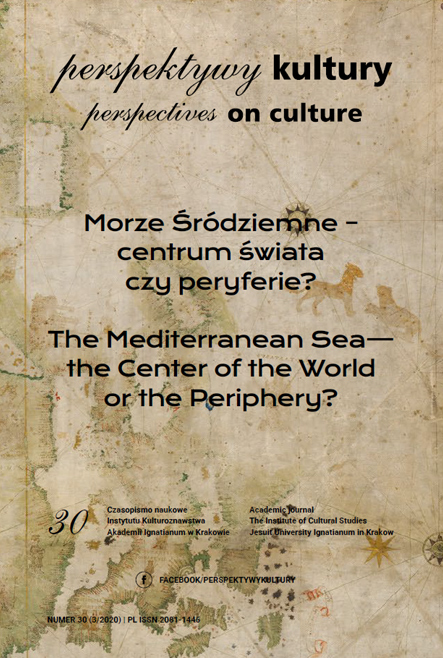From the Editors
Abstract
The French philosopher Jean-François Lyotard, although he was a professed postmodernist, did not hesitate to call the “Mediterranean myth” a great meta-narrative of European culture. For centuries, the legacy of Greco-Roman antiquity built a coherent axiological and esthetic system, elaborated with new content—especially Christian ethics—but also, for example, with the influences of the multicultural Levantine orient. The coherent, though non-uniform “myth” returned under many guises, with the rhythms of subsequent historical epochs. Is it relevant today and if so how? In the rapidly globalizing contemporary world, is the symbolically understood Mediterranean Sea still a point of reference? Finally—recalling the title of this issue—should we perceive it as a cultural “center of the world” or only as a periphery?
Copyright (c) 2020 Jesuit University Ignatianum in Krakow

This work is licensed under a Creative Commons Attribution-NoDerivatives 4.0 International License.
Autor, zgłaszając swój artykuł, wyraża zgodę na korzystanie przez Wydawnictwo Uniwersystet Ignatianum z utworu na następujących polach eksploatacji:
- utrwalania utworu w formie papierowej, a także na nośniku cyfrowym lub magnetycznym;
- zwielokrotnienia utworu dowolną techniką, bez ograniczenia ilości wydań i liczby egzemplarzy;
- rozpowszechniania utworu i jego zwielokrotnionych egzemplarzy na jakimkolwiek nośniku, w tym wprowadzenia do obrotu, sprzedaży, użyczenia, najmu;
- wprowadzenia utworu do pamięci komputera;
- rozpowszechniania utworu w sieciach informatycznych, w tym w sieci Internet;
- publicznego wykonania, wystawienia, wyświetlenia, odtworzenia oraz nadawania i reemitowania, a także publicznego udostępniania utworu w taki sposób, aby każdy mógł mieć do niego dostęp w miejscu i czasie przez siebie wybranym.
Wydawca zobowiązuje się szanować osobiste prawa autorskie do utworu.





